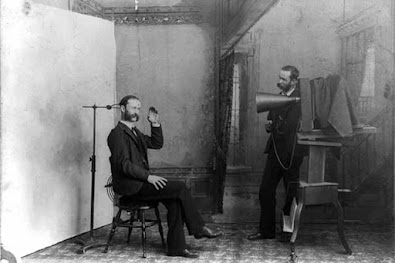 |
| Virginia Wilderness by Angelo Franco 2018 |
It might seem a trivial question—as to whether there are millions of things, or quintillions, or perhaps an infinite number.
Philosophers haven’t been much concerned. The mathematician and philosopher Bertrand Russell asked simply, ‘What things are there in the universe?’ while Socrates, in the 5th Century BC, asked ‘How many things are there which I do not want?’
The scientist Richard Colestock summarises the attitude of many today: ‘What are you going to do with this answer once you have it?’
While philosophers have, in various ways, given much thought to things, and sorts of things, the question as to the total number of things in the world has been largely overlooked. It has been of little interest to them how many things there are, outside any given field.
Yet it matters a great deal. There are core problems of philosophy which cannot be solved without deciding it.
Firstly, the total number of things is not fixed. This is due partly to the constant proliferation of 'things', as old scientific disciplines are refined, and new ones emerge. The linguist Geoffrey Leech observed, ‘In a language like English, new concepts are introduced in large numbers day by day and week by week.’ And pass out of the language, we might add.
There is, too, no end to the ‘things’ we can create in our minds: for instance, clouds with noses, or dogs which wag their tails, names which start with a ‘J’, and so on indefinitely. Strange as some things are, they are nonetheless things—and we may even treat them mathematically if we please: ‘Ten head-over-heels in five days is two head-over-heels per day.’
Above all, the number of things in this world is unthinkably large. I stand on a hilltop and look down on a city. I see one-hundred-thousand homes—which is 10^5. An insect flies before my face. It is one of ten quintillion on the planet—or 10^20. I take a breath of fresh air. It contains ten sextillion molecules—or 10^22. In fact, the classes of things alone are unthinkably many.
All such things, I may further relate to other things—across time and space, and sometimes, in startling ways. In fact, the relations between things far exceed the number of things.
We may say, therefore, that the number of things in the world is for all practical purposes infinite. John Locke used the phrase ‘almost infinite’. We might use the word boundless. We are not able to determine their bounds.
What then does it matter?
The number of things, and the number of relations between them, enables us to assess their extent or range—and with that, what powers we have in understanding and controlling our world. This has everything to do with our behaviour.
It applies above all to what we shall call ‘negative ethics’. While positive ethics tells us what we ought to do, negative ethics tells us what we ought not to—in this case, transgress our limits.
Knowing the number of things, we may be guided by a deep sense of humility and inadequacy. We shall avoid tendencies towards total control. Not least, there is the overwhelming number of things in our environment, and their complex relations. They lie far beyond what we can understand or control. When we have understood this, we may approach our environment more kindly.




